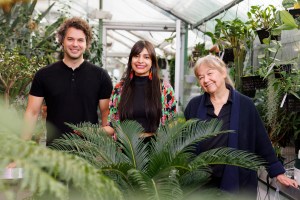Health
-
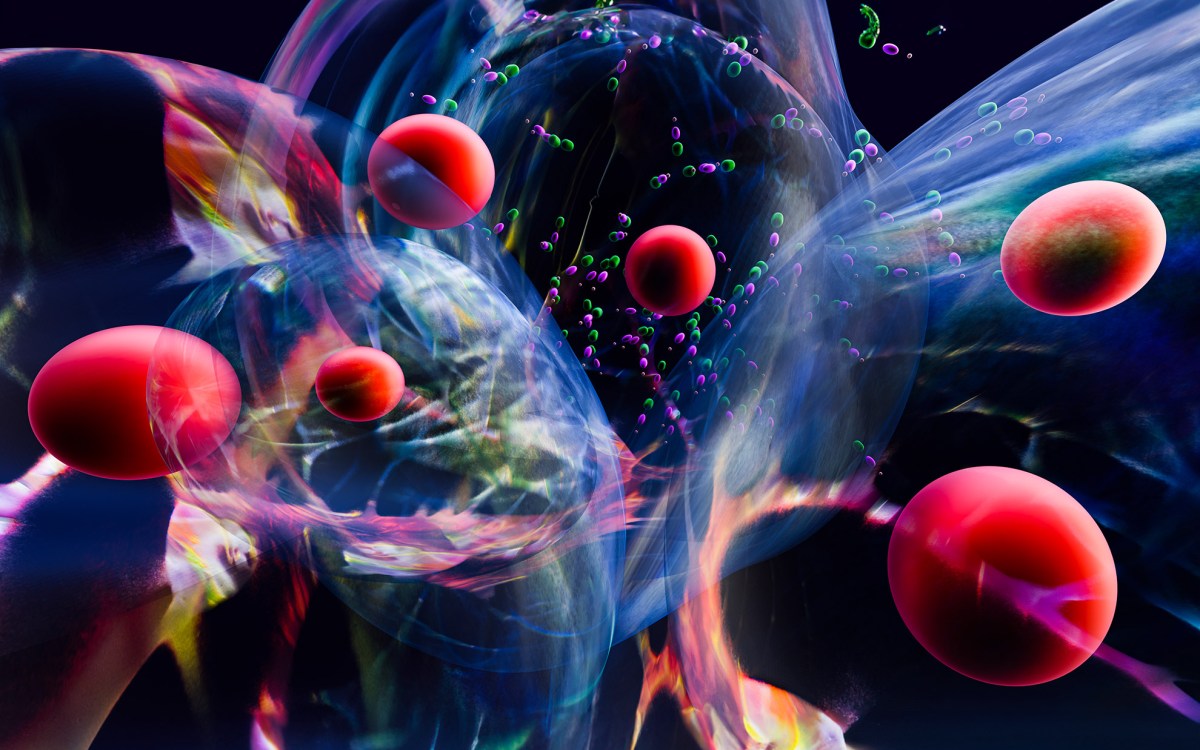
Break in the case for long COVID investigators
Research highlighting chronic inflammation opens path to treating illness that affects millions of Americans

-

The problem with the school smartphone debate
Study finds most districts already regulate devices. Is the real issue enforcement?

-
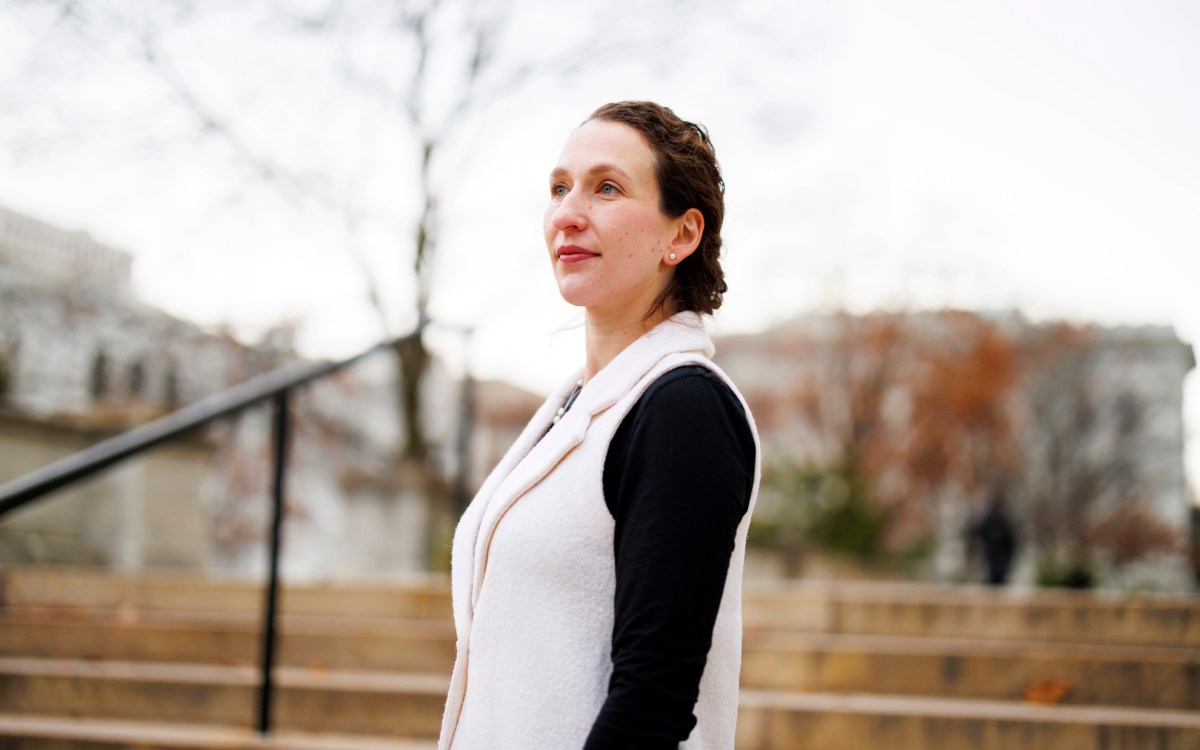
Just who gets a say at FDA public drug-approval hearings?
New research shows negative voices are relatively rare in drug approval hearings.
-

Your digital twin might save your life
AI, statistics offer new possibilities for personalized medicine
-
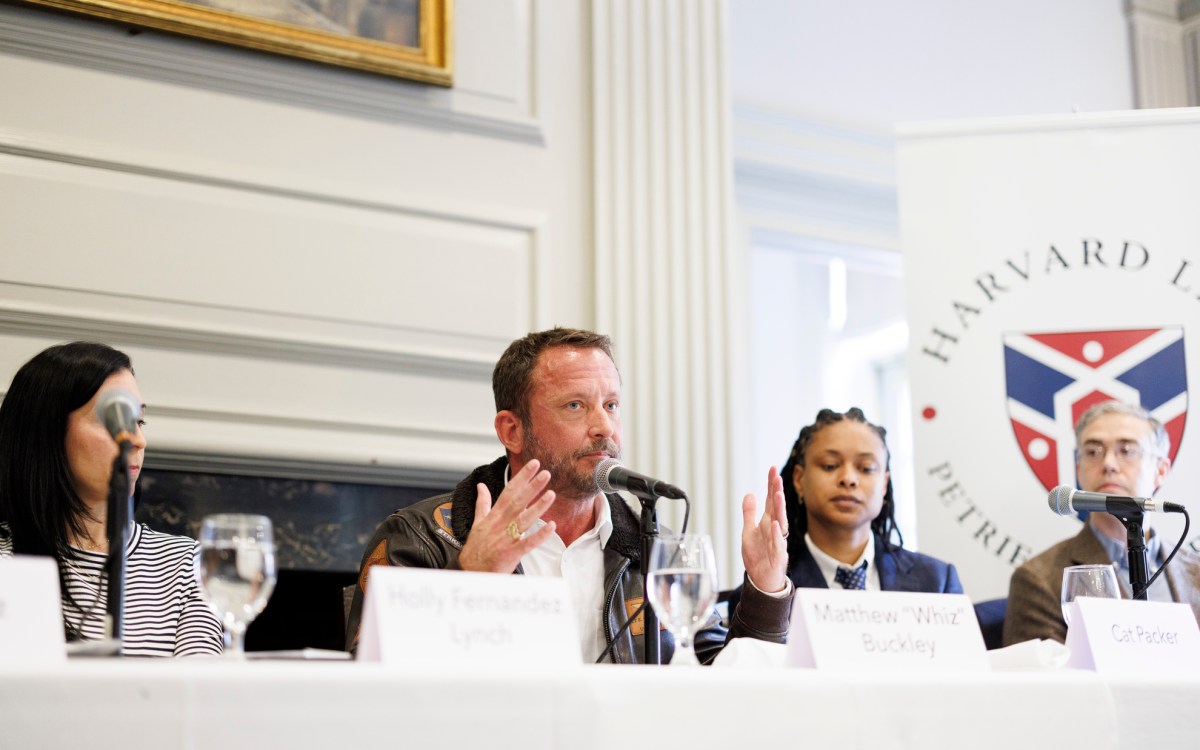
Time to legalize psychedelics?
Campus debate weighs therapeutic need vs. safety questions
-
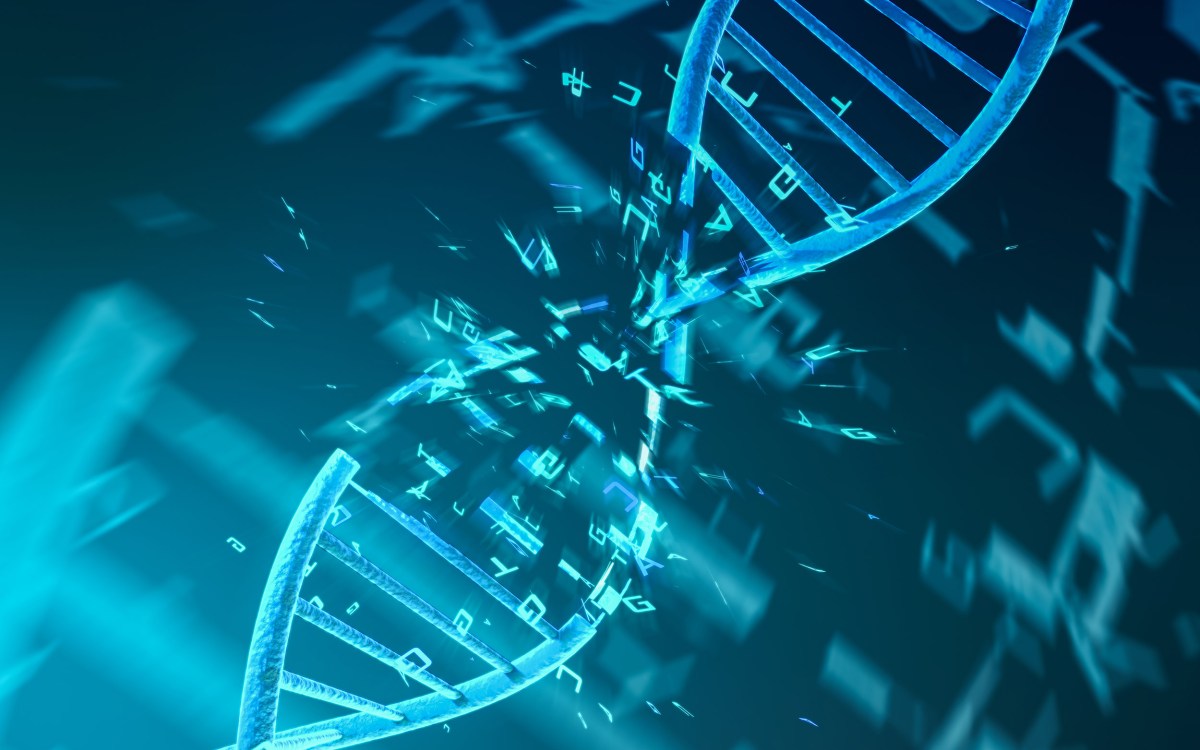
How a toxin from the gut microbiome may help spark colorectal cancer
Findings suggest colibactin may be promising target for disease prevention

-
Sex differences in brains reflect disease risks
Women’s brains are different from men’s. That’s not news. What is news is that the differences are smaller than most people believe. They are not big enough to say that one sex is smarter or better at math than the other.
-
Joslin-led study IDs genes key to regulation of body weight
A new Joslin Diabetes Center-led study has further illuminated the role of genes in regulating body weight and fat distribution. Because obesity is a major risk factor for type 2…
-
Trial Turns Over New Leaf for Traditional Herb
If a painting’s worth were measured by the money it fetched, van Gogh’s famous rendering of his friend and physician Dr. Gachet would be among the most valuable in all…
-
Red wine, taken in moderation, reduces risk of prostate cancer
Men who drink moderate amounts of red wine are only half as likely to be diagnosed with prostate cancer as those who don’t drink it at all, according to a report in the June issue of Harvard Men’s Health Letter. What’s more, the beverage seems to be especially protective against the most advanced and aggressive cancers, lowering risk by about 60 percent.
-
Major progress toward cell reprogramming; researchers approach key goal of biologists
Two Harvard Stem Cell Institute (HSCI) researchers and scientists at Whitehead Institute and Japan’s Kyoto University have independently taken major steps toward discovering ways to reprogram cells in order to direct their development – a key goal in developmental biology and regenerative medicine.
-
Major progress toward cell reprogramming
Two Harvard Stem Cell Institute (HSCI) researchers and scientists at Whitehead Institute and Japan’s Kyoto University have independently taken major steps toward discovering ways to reprogram cells in order to…
-
Gene variants significantly increase risk for breast cancer
Newly identified inherited variants of a single gene increase breast cancer risk for women of European ancestry approximately 20 percent if they carry one copy of the gene and by 60 percent if they carry two copies. These variants, in the FGFR2 (Fibroblast Growth Factor Receptor 2) gene, were found in more than half of the women studied.
-
Addiction illuminates concept of ‘free will’
Whether humans possess free will or whether their actions are determined by something outside their conscious control is one of the most persistent problems in philosophy.
-
Water solutions
The pictures — of children with sunken eyes and shriveled skin; oxen being herded across a river where women clean their clothes and fill their pitchers; an African villager sipping water from a shallow puddle — made the point like no words could at the May 11 Center for International Development symposium “The Impact of the Global Water Crisis on Health and Human Development” at the Harvard School of Public Health (HSPH).
-
Pursuing a cholera vaccine
The reports from Dhaka are hopeful. It is 2005, and Dr. Firdausi Qadri and colleagues at the International Center for Diarrheal Disease Research, Bangladesh, are testing a new cholera vaccine…
-
Species thrive when sexual dimorphism broadens niches
Some Caribbean lizards’ strong sexual dimorphism allows them to colonize much larger niches and habitats than they might otherwise occupy, allowing males and females to avoid competing with each other for resources and setting the stage for the population as a whole to thrive. The finding, reported this week in the journal Nature, suggests sex differences may have fueled the evolutionary flourishing of the Earth’s wildly diverse fauna in a way not previously appreciated by scientists.
-
Patrick announces $1B initiative
Massachusetts Gov. Deval Patrick Tuesday (May 8) announced a $1 billion biotech initiative to secure Massachusetts its position as a world leader in biotechnology and stem cell science.
-
Evolution caught playing with genetic on-off switch
A tiny opossum’s genome has shed light on how evolution creates new creatures from old, showing that change primarily comes by finding new ways of turning existing genes on and off.
-
Leading scientists announce creation of Encyclopedia of Life
Realizing a dream articulated in 2003 by renowned biologist E.O. Wilson, Harvard and four partner institutions have launched an ambitious effort to create an Encyclopedia of Life (EOL), an unprecedented project to document online every one of Earth’s 1.8 million known species. For the first time in history, the EOL would grant scientists, students, and others multimedia access to all known living species, even those just discovered.
-
Diabetes drug dramatically boosts power of platinum chemotherapy
A widely used diabetes drug dramatically boosted the potency of platinum-based cancer drugs when administered together to a variety of cancer cell lines and to mice with tumors, report scientists from Harvard-affiliated Dana-Farber Cancer Institute.
-
Opossum genome shows ‘junk’ DNA source of genetic innovation
A tiny opossum’s genome has shed light on how evolution creates new creatures from old, showing that change primarily comes by finding new ways of turning existing genes on and…
-
Too much water can be life-threatening for marathoners
Runners who consume too much water or sports drinks during a marathon can develop a life-threatening condition called exercise-associated hyponatremia (EAH). Beyond drinking, however, researchers at Harvard-affiliated McLean Hospital report in the May 2007 issue of the American Journal of Medicine that this complication during endurance exercise is also the result of a hormonal stress response, which decreases urine formation and prevents the excretion of excess water.
-
Ursano: Stopping post-traumatic stress disorder before it happens
Mental health professionals are aware of the importance of understanding the kinds of illnesses — such as depression and post-traumatic stress disorder (PTSD) — that can result from disasters both natural and human-made. But perhaps even more crucial, according to Robert J. Ursano, is that they understand the behaviors associated with such events.
-
Verbal beatings hurt as much as sexual abuse
Sticks and stones may break my bones, But names will never hurt me. …
-
When fish first started biting
Before fish began to invade land, about 365 million years ago, they had some big problems to solve. They needed to come up with new ways to move, breathe, and eat.
-
Researchers develop ALS mouse stem cell line
A team of Harvard researchers has used embryonic stem cells, derived from mice carrying a human gene known to cause a form of amyotrophic lateral sclerosis (ALS), to create an in vitro model of the always-fatal neurodegenerative disease.
-
Humans hot, sweaty, natural-born runners
Hairless, clawless, and largely weaponless, ancient humans used the unlikely combination of sweatiness and relentlessness to gain the upper hand over their faster, stronger, generally more dangerous animal prey, Harvard Anthropology Professor Daniel Lieberman said Thursday (April 12).
-
Eradicating polio better option than control
Concerns about the high perceived costs of eradicating the relatively low number of polio cases worldwide have led to recent suggestions that it is time to shift from a goal of eradication to control: abandoning eradication and allowing wild poliovirus to continue to circulate, which proponents of control believe can sustain the low number of cases.
-
Root, root, root for the umpire
The roar of the crowd may subconsciously influence some referees to give an advantage to the home team, according to a study that examines the results of more than 5,000 soccer matches in the English Premier League. The matches were played between 1992 and 2006, and involved 50 different referees, each of whom had officiated at least 25 games within that time period.
-
Manipulating genetic switch in mice eases MD symptoms
Scientists at Dana-Farber Cancer Institute have shown in a laboratory study that revving up a crucial set of muscle genes counteracts the damage caused by a form of muscular dystrophy.
-
Finding the start of Alzheimer’s disease
Faces are hard to remember. Even harder are the names that go with them. It’s one of the most common problems people face as they get older.
-
Weight gain in pregnancy linked to overweight in kids
Pregnant women who gain excessive or even appropriate weight, according to current guidelines, are four times more likely than women who gain inadequate weight to have a baby who becomes overweight in early childhood. These findings are from a new study at the Department of Ambulatory Care and Prevention of Harvard Medical School (HMS) and Harvard Pilgrim Health Care, and are published in the April issue of the American Journal of Obstetrics and Gynecology.
-
Battling AIDS in Brazil: A message of hope
John David, a professor emeritus at the Harvard School of Public Health (HSPH), described his efforts to distribute condoms in Salvador, the capital of the Brazilian state of Bahia. Starting in 1996, he worked with a nongovernmental organization (NGO) to give away free condoms during Carnaval. The project enjoyed a high degree of acceptance.
-
Finding the start of Alzheimer’s disease
Faces are hard to remember. Even harder are the names that go with them. It’s one of the most common problems people face as they get older. In puzzling over…
-
Smile and the world smiles with you, but why?
“We are connected in ways we don’t consciously know, but which are absolutely essential for communication,” said psychologist and author Daniel Goleman at a March 14 talk on social intelligence sponsored by the John F. Kennedy School of Government’s Center for Public Leadership. “There is a subterranean emotional economy that’s part of any interaction.”


